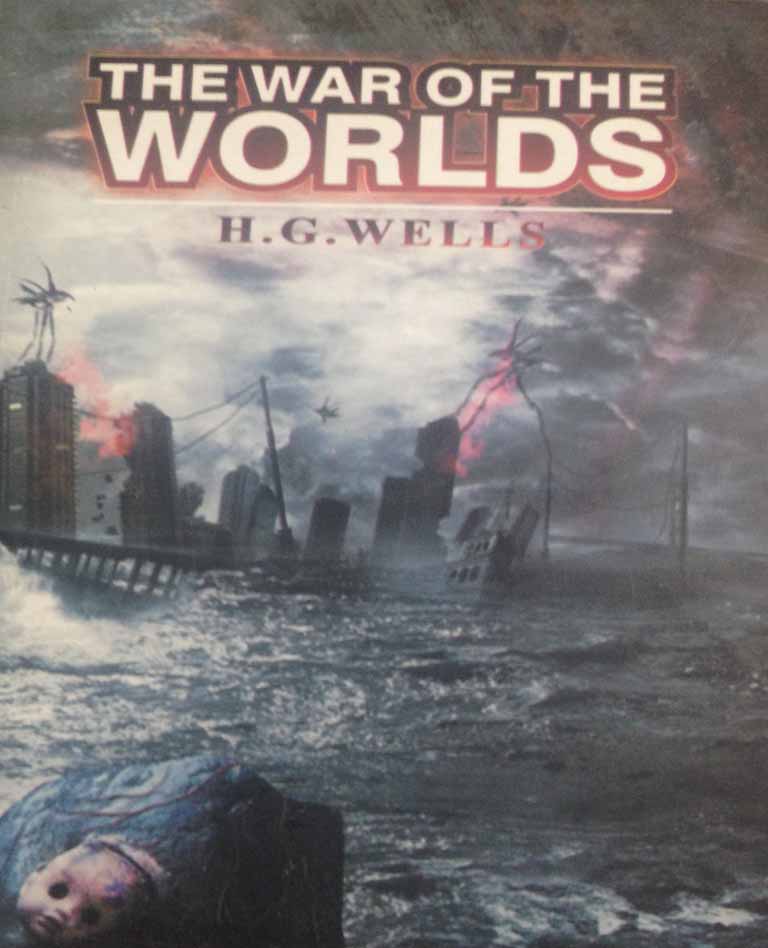You must be logged in to post a review.
The War Of The Worlds
by H G Wells
Description:
I now see that it was the least earthly creatures it is possible to conceive. They comprised a large round body, or rather a large round head about four feet in diameter and provided with a figure. This face had no nostrils – indeed the Martians do not seem to have been gifted to smell – but had two big dark eyes, below which was immediately a kind of cartilaginous beak. War of the Worlds is a fascinating story that tells the invasion of Earth by Martians.
This is an external indicator that shows the confusion and the desperate struggle of men facing a cataclysm straight out of hell. If Martians are first presented as weak (Earth gravity, three times greater than that of Mars, effectively prevents them from moving quickly), they will not delay to unveil their power, which will d equal their cruelty.
Masterpiece of modern science fiction, this novel is the first to describe the aliens identity, intelligent and totally inhuman. War of the Worlds is one of those texts that pass through time, and it has inspired Steven Spielberg’s new epic movie.
About The Author
In 1866, (Herbert George) H.G. Wells was born to a working class family in Kent, England. Young Wells received a spotty education, interrupted by several illnesses and family difficulties, and became a draper’s apprentice as a teenager. The headmaster of Midhurst Grammar School, where he had spent a year, arranged for him to return as an “usher,” or student teacher. Wells earned a government scholarship in 1884, to study biology under Thomas Henry Huxley at the Normal School of Science. Wells earned his bachelor of science and doctor of science degrees at the University of London. After marrying his cousin, Isabel, Wells began to supplement his teaching salary with short stories and freelance articles, then books, including The Time Machine (1895), The Island of Dr. Moreau (1896), The Invisible Man (1897), and The War of the Worlds (1898).
Wells created a mild scandal when he divorced his cousin to marry one of his best students, Amy Catherine Robbins. Although his second marriage was lasting and produced two sons, Wells was an unabashed advocate of free (as opposed to “indiscriminate”) love. He continued to openly have extra-marital liaisons, most famously with Margaret Sanger, and a ten-year relationship with the author Rebecca West, who had one of his two out-of-wedlock children. A one-time member of the Fabian Society, Wells sought active change. His 100 books included many novels, as well as nonfiction, such as A Modern Utopia (1905), The Outline of History (1920), A Short History of the World (1922), The Shape of Things to Come (1933), and The Work, Wealth and Happiness of Mankind (1932). One of his booklets was Crux Ansata, An Indictment of the Roman Catholic Church. Although Wells toyed briefly with the idea of a “divine will” in his book, God the Invisible King (1917), it was a temporary aberration. Wells used his international fame to promote his favorite causes, including the prevention of war, and was received by government officials around the world. He is best-remembered as an early writer of science fiction and futurism.
He was also an outspoken socialist. Wells and Jules Verne are each sometimes referred to as “The Fathers of Science Fiction”. D. 1946.









Reviews
There are no reviews yet.